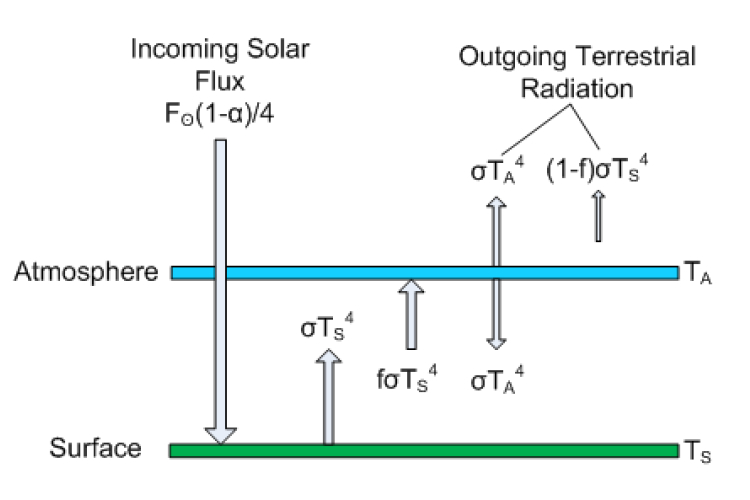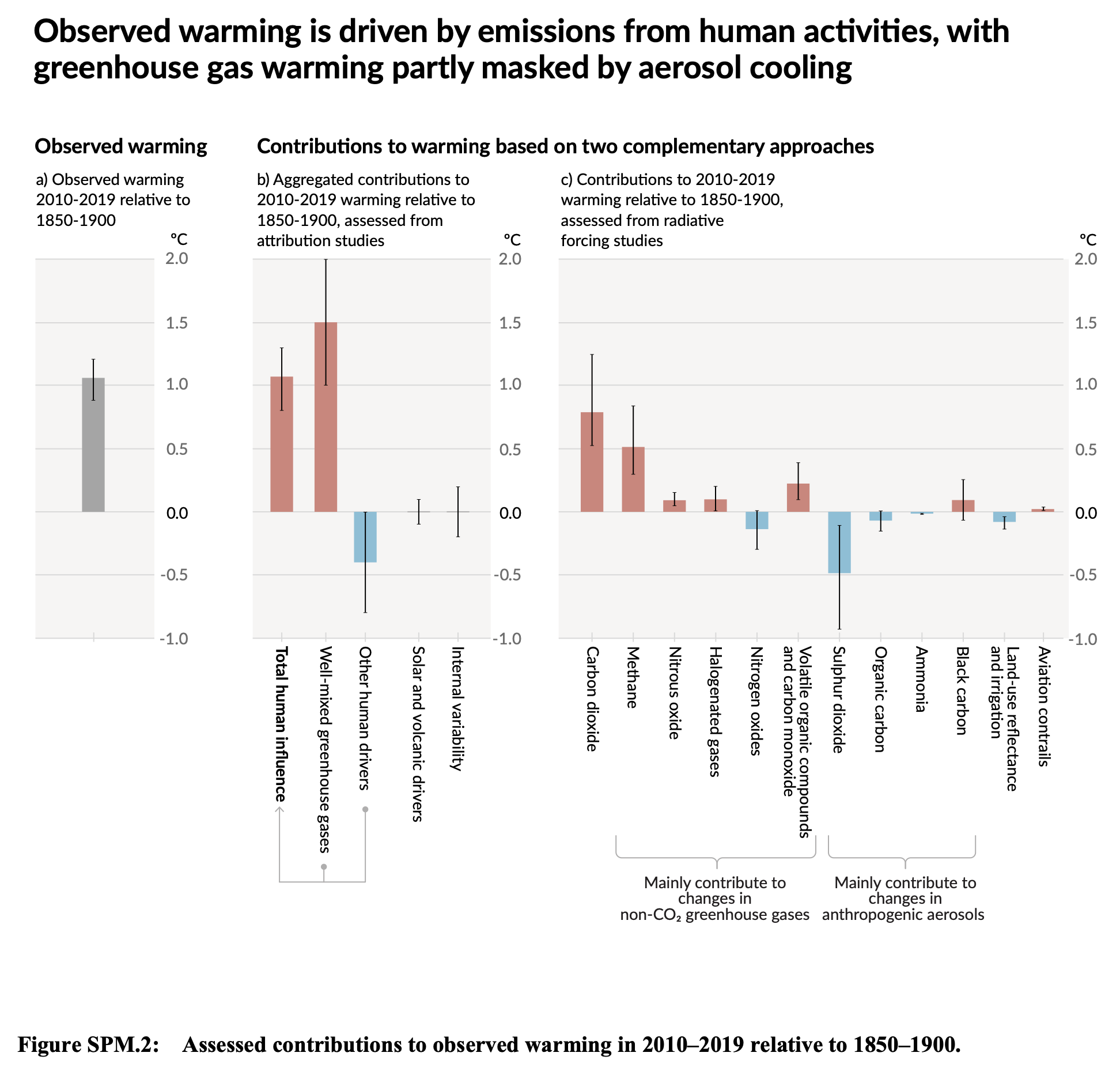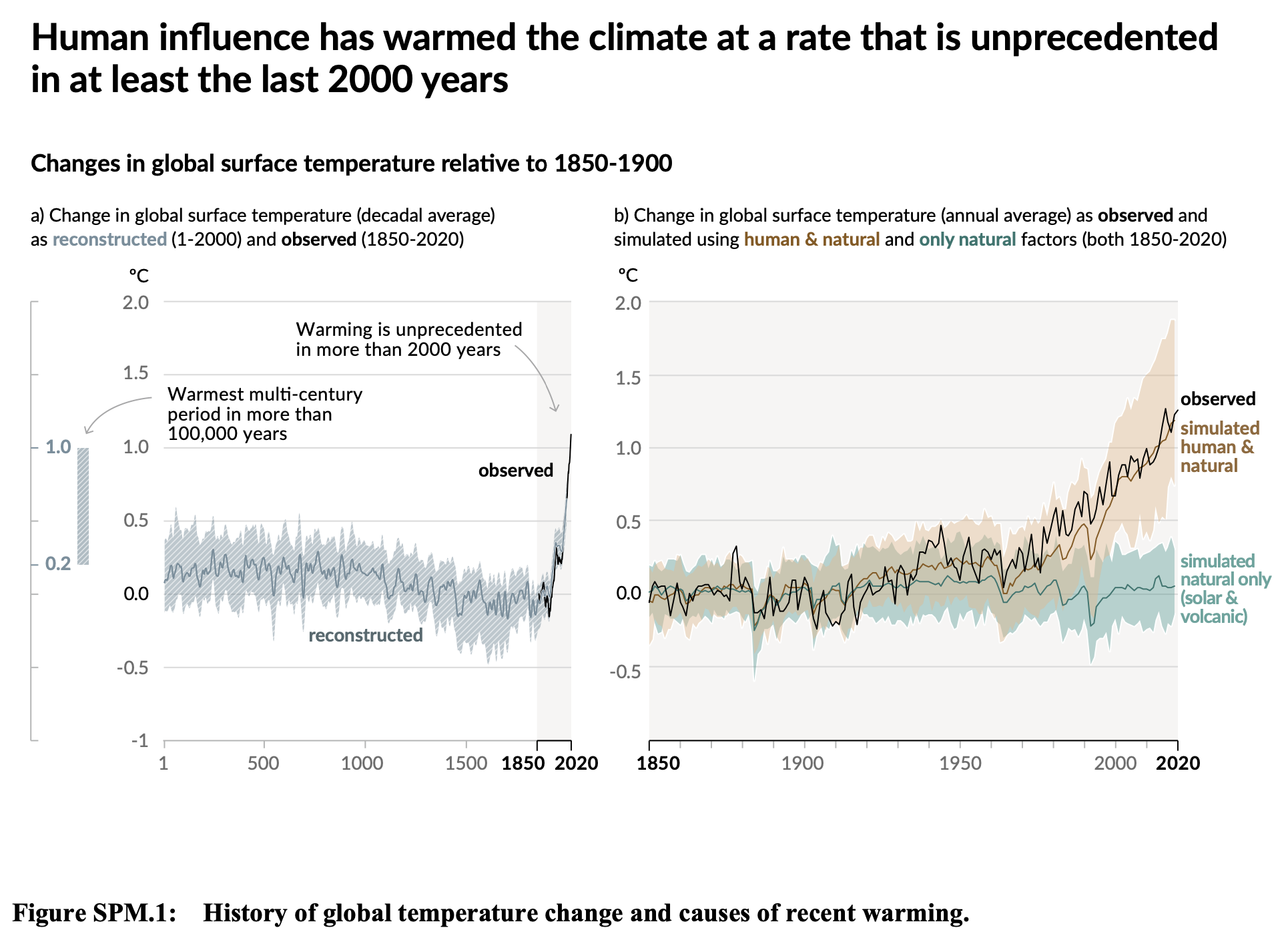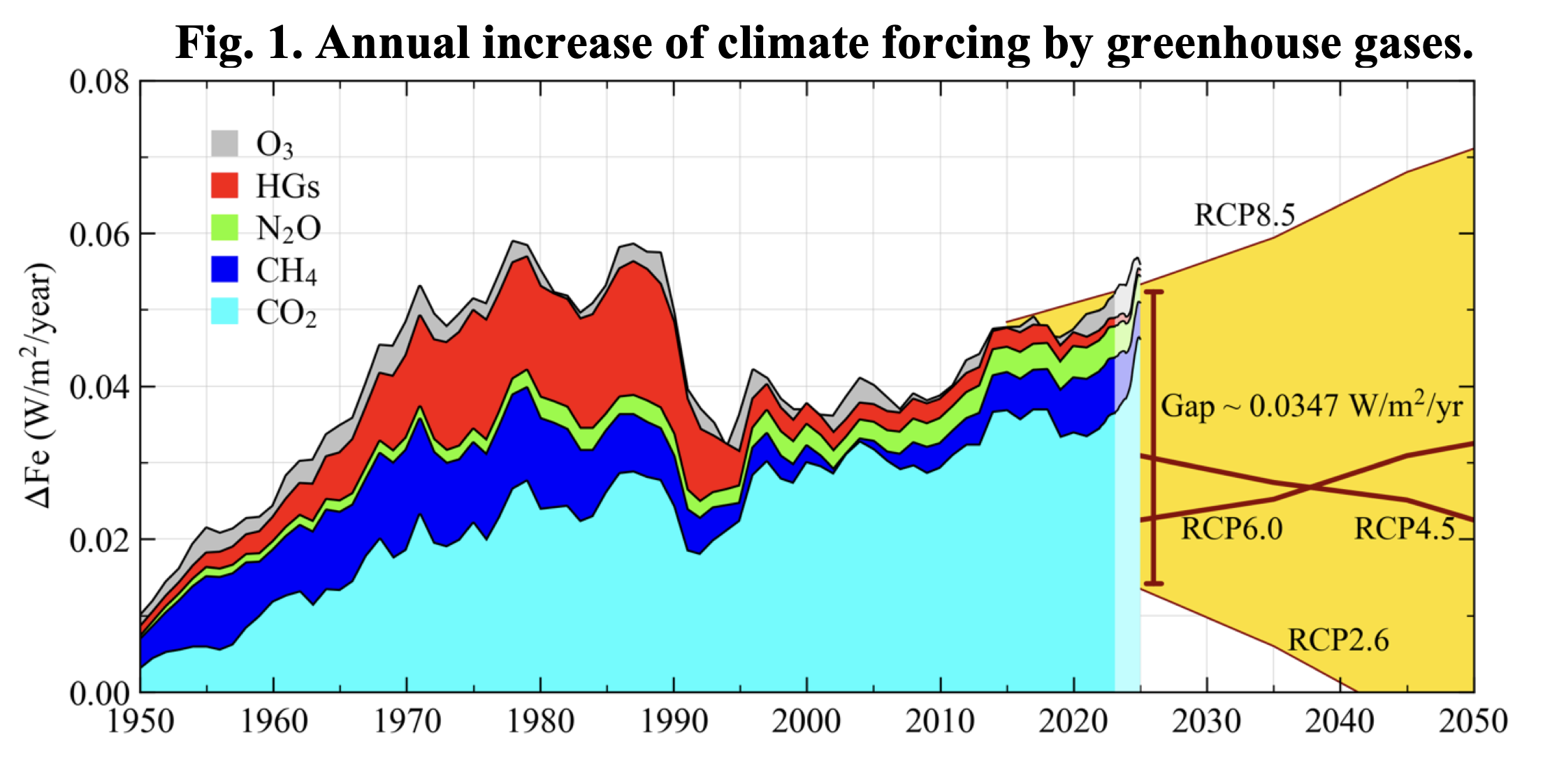The Carbon Dioxide Greenhouse Effect
https://history.aip.org/climate/co2.htm
The Discovery of Global Warming
https://history.aip.org/climate/index.htm
The document from the American Institute of Physics traces
the evolution of scientific understanding regarding carbon
dioxide's role in the greenhouse effect and climate change.
In the 19th century, scientists like John Tyndall identified
gases such as CO2 and water vapor as key contributors to
atmospheric heat retention. Svante Arrhenius later
hypothesized that increased CO2 from industrial activities
could lead to global warming, though his ideas were
initially met with skepticism. In 1958, Charles David
Keeling’s precise measurements at Mauna Loa Observatory
confirmed a significant rise in atmospheric CO2 levels,
providing concrete evidence of human impact on the
environment. Subsequent research has underscored CO2's
critical role in climate change, highlighting the potential
consequences of its continued increase.



 The Quantum Mechanics of Greenhouse Gases
https://www.quantamagazine.org/the-quantum-mechanics-of-greenhouse-gases-20250915/
Earth's radiation can send some molecules spinning or
vibrating, which is what makes them greenhouse gases. This
infographic explains how relatively few heat-trapping
molecules can have a planetary effect.
Physicists Pinpoint the Quantum Origin of the Greenhouse Effect
https://www.quantamagazine.org/physicists-pinpoint-the-quantum-origin-of-the-greenhouse-effect-20240807/
https://iopscience.iop.org/article/10.3847/PSJ/ad226d/pdf
Carbon dioxide's powerful heat-trapping effect has been
traced to a quirk of its quantum structure. The finding may
explain climate change better than any computer model.
Atmospheric Transmission
The Quantum Mechanics of Greenhouse Gases
https://www.quantamagazine.org/the-quantum-mechanics-of-greenhouse-gases-20250915/
Earth's radiation can send some molecules spinning or
vibrating, which is what makes them greenhouse gases. This
infographic explains how relatively few heat-trapping
molecules can have a planetary effect.
Physicists Pinpoint the Quantum Origin of the Greenhouse Effect
https://www.quantamagazine.org/physicists-pinpoint-the-quantum-origin-of-the-greenhouse-effect-20240807/
https://iopscience.iop.org/article/10.3847/PSJ/ad226d/pdf
Carbon dioxide's powerful heat-trapping effect has been
traced to a quirk of its quantum structure. The finding may
explain climate change better than any computer model.
Atmospheric Transmission

 Earth's Energy Imbalance (Radiative Forcing)
The earth is absorbing more energy from the sun than it's
giving up due to increasing greenhouse gas concentrations.
The excess energy that the planet is absorbing is enormous.
The total energy imbalance is now greater than 3.1 W/m^2.
Earth's Energy Imbalance (Radiative Forcing)
The earth is absorbing more energy from the sun than it's
giving up due to increasing greenhouse gas concentrations.
The excess energy that the planet is absorbing is enormous.
The total energy imbalance is now greater than 3.1 W/m^2.

 From the Laws of Thermodynamics earth must warm until it
reaches a new equilibrium (Ein = Eout) at higher temperature.
Given current concentrations of greenhouse gasses, the earth
will continue to warm for centuries.
James Hansen (2012): Why I must speak out about climate change
https://www.ted.com/talks/james_hansen_why_i_must_speak_out_about_climate_change/
Hanson-TED_Talk.mp4 (17+ min)
From the Laws of Thermodynamics earth must warm until it
reaches a new equilibrium (Ein = Eout) at higher temperature.
Given current concentrations of greenhouse gasses, the earth
will continue to warm for centuries.
James Hansen (2012): Why I must speak out about climate change
https://www.ted.com/talks/james_hansen_why_i_must_speak_out_about_climate_change/
Hanson-TED_Talk.mp4 (17+ min)
 Daily Surface Air Temperature (Interactive)
https://climatereanalyzer.org/clim/t2_daily/?dm_id=world
Daily Sea Surface Temperature (Interactive)
https://climatereanalyzer.org/clim/sst_daily/?dm_id=world2
IPCC (Intergovernmental Panel on Climate Change)
https://www.ipcc.ch
https://www.ipcc.ch/report/srccl/
https://www.ipcc.ch/srocc/home/
https://www.ipcc.ch/reports/
https://www.ipcc.ch/ar6-syr/
Leading climate scientists have given their starkest warning
yet-that we are rushing to the brink of climate catastrophe.
The Intergovernmental Panel on Climate Change (IPCC)
published its sixth assessment report, a comprehensive
review of the world's knowledge of the climate crisis and
how human actions are altering the planet. It shows in
detail how close the world is to irreversible change.
UNEP Emissions Gap Report 2025
EGR2025.pdf
The United Nations Environment Programme’s (UNEP) Emissions
Gap Report 2024 underscores the urgent need for nations to
significantly enhance their climate commitments. Immediate
and substantial action is imperative to bridge the emissions
gap and avert the most severe consequences of climate
change.
European climate risk assessment (2024)
Executive summary
EXECUTIVE_SUMMARY_European_climate_risk_assessment_TH-AL-24-001-EN-N.pdf
Human-induced climate change is affecting the planet;
globally, 2024 was the warmest year on record, and the
average global temperature in the 12-month period between
February 2023 and January 2024 exceeded pre-industrial
levels by 1.5°C.
Fifth National Climate Assessment (NCA5)
noaa_61592_DS1.pdf
fifth-national-climate-assessment-presentation.pdf
The Fifth National Climate Assessment is the US Government's
preeminent report on climate change impacts, risks, and
responses. It is a congressionally mandated interagency
effort that provides the scientific foundation to support
informed decision-making across the United States
Tutorial: Evaluating and Explaining Climate Science
https://scienceofdoom.com
Daily Surface Air Temperature (Interactive)
https://climatereanalyzer.org/clim/t2_daily/?dm_id=world
Daily Sea Surface Temperature (Interactive)
https://climatereanalyzer.org/clim/sst_daily/?dm_id=world2
IPCC (Intergovernmental Panel on Climate Change)
https://www.ipcc.ch
https://www.ipcc.ch/report/srccl/
https://www.ipcc.ch/srocc/home/
https://www.ipcc.ch/reports/
https://www.ipcc.ch/ar6-syr/
Leading climate scientists have given their starkest warning
yet-that we are rushing to the brink of climate catastrophe.
The Intergovernmental Panel on Climate Change (IPCC)
published its sixth assessment report, a comprehensive
review of the world's knowledge of the climate crisis and
how human actions are altering the planet. It shows in
detail how close the world is to irreversible change.
UNEP Emissions Gap Report 2025
EGR2025.pdf
The United Nations Environment Programme’s (UNEP) Emissions
Gap Report 2024 underscores the urgent need for nations to
significantly enhance their climate commitments. Immediate
and substantial action is imperative to bridge the emissions
gap and avert the most severe consequences of climate
change.
European climate risk assessment (2024)
Executive summary
EXECUTIVE_SUMMARY_European_climate_risk_assessment_TH-AL-24-001-EN-N.pdf
Human-induced climate change is affecting the planet;
globally, 2024 was the warmest year on record, and the
average global temperature in the 12-month period between
February 2023 and January 2024 exceeded pre-industrial
levels by 1.5°C.
Fifth National Climate Assessment (NCA5)
noaa_61592_DS1.pdf
fifth-national-climate-assessment-presentation.pdf
The Fifth National Climate Assessment is the US Government's
preeminent report on climate change impacts, risks, and
responses. It is a congressionally mandated interagency
effort that provides the scientific foundation to support
informed decision-making across the United States
Tutorial: Evaluating and Explaining Climate Science
https://scienceofdoom.com
 Summary
o The greenhouse gas effect is well understood
o Human activity is increasing greenhouse gas concentration
o Resulting warming is changing weather, ecosystems, and life
sam.wormley@icloud.com
Summary
o The greenhouse gas effect is well understood
o Human activity is increasing greenhouse gas concentration
o Resulting warming is changing weather, ecosystems, and life
sam.wormley@icloud.com



The Quantum Mechanics of Greenhouse Gases https://www.quantamagazine.org/the-quantum-mechanics-of-greenhouse-gases-20250915/ Earth's radiation can send some molecules spinning or vibrating, which is what makes them greenhouse gases. This infographic explains how relatively few heat-trapping molecules can have a planetary effect. Physicists Pinpoint the Quantum Origin of the Greenhouse Effect https://www.quantamagazine.org/physicists-pinpoint-the-quantum-origin-of-the-greenhouse-effect-20240807/ https://iopscience.iop.org/article/10.3847/PSJ/ad226d/pdf Carbon dioxide's powerful heat-trapping effect has been traced to a quirk of its quantum structure. The finding may explain climate change better than any computer model. Atmospheric Transmission

Earth's Energy Imbalance (Radiative Forcing) The earth is absorbing more energy from the sun than it's giving up due to increasing greenhouse gas concentrations. The excess energy that the planet is absorbing is enormous. The total energy imbalance is now greater than 3.1 W/m^2.

From the Laws of Thermodynamics earth must warm until it reaches a new equilibrium (Ein = Eout) at higher temperature. Given current concentrations of greenhouse gasses, the earth will continue to warm for centuries. James Hansen (2012): Why I must speak out about climate change https://www.ted.com/talks/james_hansen_why_i_must_speak_out_about_climate_change/ Hanson-TED_Talk.mp4 (17+ min)
Daily Surface Air Temperature (Interactive) https://climatereanalyzer.org/clim/t2_daily/?dm_id=world Daily Sea Surface Temperature (Interactive) https://climatereanalyzer.org/clim/sst_daily/?dm_id=world2 IPCC (Intergovernmental Panel on Climate Change) https://www.ipcc.ch https://www.ipcc.ch/report/srccl/ https://www.ipcc.ch/srocc/home/ https://www.ipcc.ch/reports/ https://www.ipcc.ch/ar6-syr/ Leading climate scientists have given their starkest warning yet-that we are rushing to the brink of climate catastrophe. The Intergovernmental Panel on Climate Change (IPCC) published its sixth assessment report, a comprehensive review of the world's knowledge of the climate crisis and how human actions are altering the planet. It shows in detail how close the world is to irreversible change. UNEP Emissions Gap Report 2025 EGR2025.pdf The United Nations Environment Programme’s (UNEP) Emissions Gap Report 2024 underscores the urgent need for nations to significantly enhance their climate commitments. Immediate and substantial action is imperative to bridge the emissions gap and avert the most severe consequences of climate change. European climate risk assessment (2024) Executive summary EXECUTIVE_SUMMARY_European_climate_risk_assessment_TH-AL-24-001-EN-N.pdf Human-induced climate change is affecting the planet; globally, 2024 was the warmest year on record, and the average global temperature in the 12-month period between February 2023 and January 2024 exceeded pre-industrial levels by 1.5°C. Fifth National Climate Assessment (NCA5) noaa_61592_DS1.pdf fifth-national-climate-assessment-presentation.pdf The Fifth National Climate Assessment is the US Government's preeminent report on climate change impacts, risks, and responses. It is a congressionally mandated interagency effort that provides the scientific foundation to support informed decision-making across the United States Tutorial: Evaluating and Explaining Climate Science https://scienceofdoom.com
Summary o The greenhouse gas effect is well understood o Human activity is increasing greenhouse gas concentration o Resulting warming is changing weather, ecosystems, and life sam.wormley@icloud.com